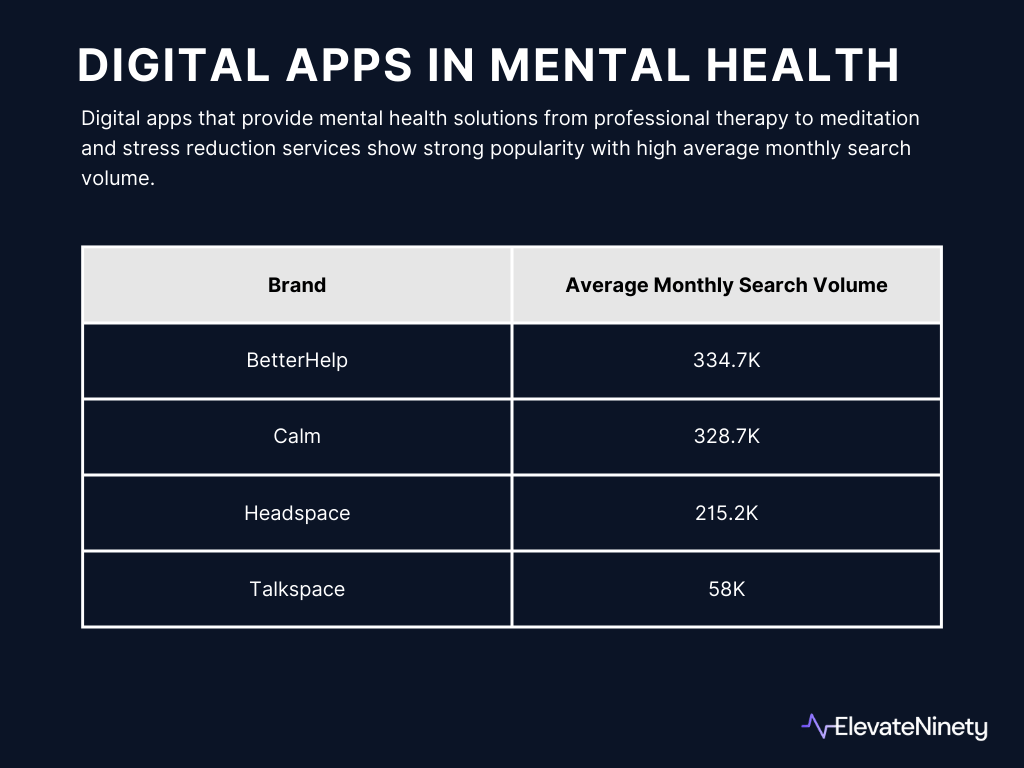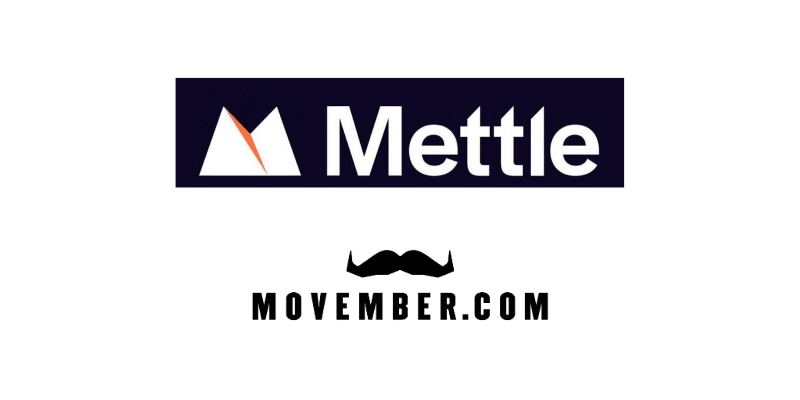The way people search for mental health support is changing — and fast. Keyword trends in mental health can provide actionable insights and clues to rising concerns about their mental well-being. In a digital-first world, search engines have become a primary tool for understanding and addressing mental health needs. Whether it’s seeking therapy, exploring emerging treatments, or searching for self-help resources, keyword trends provide a real-time snapshot of what matters most to individuals today.
From the continued rise of online therapy to the growing interest in holistic approaches like meditation and cold water therapy, these search trends highlight how society’s approach to mental well-being is evolving. Furthermore, mental health practitioners and organisations can use these insights to better connect with their audiences. By understanding keyword trends, they can create targeted, relevant content that addresses people’s needs and establishes trust. They can also establish new service areas and better understand their audiences key mental health concerns.
Why Do Keyword Trends Matter in Mental Health?
Keyword trends reveal how people search for support and information. In mental health, understanding these trends is crucial. They show what matters most to individuals at any given time, from rising concerns to popular therapies.
Tracking keyword trends helps practitioners and organisations stay relevant. By aligning content with what people are searching for, they can reach those in need more effectively. It also provides insights into broader societal changes. For example, a spike in searches for “burnout recovery” might reflect workplace pressures or economic uncertainty.
Using keyword trends, mental health professionals can create targeted content. This could include blogs, videos, or resources that address emerging topics. Ultimately, keyword research helps build trust and ensures the right information reaches the right audience.
Which Branded Keywords are Trending?
Branded keywords can signal which companies or services are gaining attention. Recently, terms like “BetterHelp” and “Talkspace” have grown in popularity. These online therapy platforms are meeting demand for accessible mental health support. Similarly, apps like “Headspace” and “Calm” show strong interest in mindfulness and relaxation tools.

These branded keywords reflects a shift towards digital solutions. It highlights how people seek convenient, technology-driven options for mental health care.

Mental health brands that have high volumes of branded search demonstrate high brand awareness and brand strength. They can establish authority and capture new audiences purely through organic search. By investing in SEO and monitoring search behaviour, these organisations can ensure they remain visible and trusted through the strength of their brands.
People Seek Out Specific Services in Search
The days of vague mental health queries are over. People now search with precision, using terms like “CBT for anxiety,” or “trauma therapy”. This shift reflects a more informed public, aware of different therapies and what might suit their needs.

This change is driven by increased awareness. Media, social platforms, and even celebrities have normalised mental health discussions, leading to more specific searches. People don’t just want help—they want the right kind of help. As a result, niche services are seeing a surge in demand. Terms like “LGBTQ+ counselling” or “ADHD coaching” show the growing emphasis on tailored support.
For mental health practitioners, this is a chance to specialise. Creating content around specific services and optimising for detailed keywords can attract highly targeted audiences. As the mental health landscape diversifies, those who meet the precise needs of consumers will increases their opportunity to resonate with specific audiences.
Online Therapy Remains Popular
Online therapy continues to dominate the mental health conversation. Search terms like “online therapy platforms” may have plateaued lightly over the last few years but the trends show sustained demand for the digital solution term. Despite search volume specifically for “online therapy” showing a plateau, this trend shows no sign of slowing. In fact, the increase for branded search terms such as “BetterHelp” demonstrate the maturing of the market as consumers become increasingly aware of brands and specific services that can help them in achieving their goals.
The appeal is clear, driven by convenience and accessibility. Online therapy removes barriers like travel, time constraints, and stigma. It offers privacy and flexibility, particularly for people with busy schedules or those living in rural areas. However, cost does appear to be a factor. Searches for “free online therapy” and “online therapy that takes insurance” suggest cost may be a barrier to some but hasn’t prevented its enduring popularity for most.
The growth of online therapy reflects broader changes in how people access healthcare. As digital-first solutions become the norm, providers must adapt. Mental health professionals can leverage this by offering virtual services or partnering with established platforms. Staying visible in this competitive market means optimising content for keywords linked to online care and its benefits.

Trending Topics Related to Mental Health
The mental health landscape is evolving rapidly, with search trends revealing a mix of traditional concerns and emerging ideas. Classic topics like “stress management techniques” and “burnout symptoms” remain prominent. However, new themes are capturing attention, reflecting shifts in societal focus, scientific exploration and the closer integration of mental health into people’s holistic well-being.
One rising topic is the “menopause brain,” as awareness grows around cognitive changes linked to hormonal shifts. Similarly, “gut-brain axis” is gaining traction, highlighting the connection between digestive health and mental well-being. These searches suggest people are looking for holistic approaches to mental health.
The interest in alternative therapies is also clear. Searches for “what are psychedelics” and “ketamine therapy” point to curiosity about cutting-edge treatments for conditions like depression and PTSD.

Meanwhile, practices that involve self-care are also trending significantly. Topics such as “meditation”, “journaling” and “cold water therapy” are trending as people explore self care activities and create habits that enhance mental well-being.
Practitioners who address these topics can tap into a growing audience. Creating content that educates, informs, and supports these interests builds authority and trust. As the conversation around mental health continues to expand, staying ahead of these trends will be key to driving engagement and fostering innovation.
Seasonal Keywords
Mental health searches follow distinct seasonal patterns. These trends often align with the emotional and psychological shifts people experience throughout the year. For instance, during the winter months, terms like “seasonal affective disorder” and “winter blues support” peak in popularity. This reflects the impact of shorter days and colder weather on mood and energy levels.
Spring and summer, however, bring a rise in searches related to “overcoming anxiety for holidays” or “managing social anxiety at events.” The festive season sees a spike in queries like “grief at Christmas.” These searches highlight how different times of the year bring unique mental health challenges.
Moreover, popular mental health awareness campaigns such as “Movember” spike in search during the period of the campaign.

For practitioners, understanding these seasonal trends is vital. By planning content around them, they can meet people’s needs at the right time. Blog posts, social media campaigns, and resources tailored to these keywords can improve engagement and offer timely support.
Recommended article: How to Optimise Health and Wellness Content For Seasonal SEO
How Mental Health Practitioners Can Use Keywords
Mental health practitioners can harness the power of keywords to expand their reach and impact. Keyword research provides valuable insights into what people are searching for, helping practitioners align their services with real-time demand.
Creating optimised content is one of the most effective strategies. Blogs, articles, and videos addressing trending topics — such as “ketamine therapy” or “coping with burnout” — can attract audiences actively seeking those terms. Location-based keywords, like “therapists in [city],” are also critical for connecting with local clients.
Beyond content, keywords can enhance digital advertising efforts. Google Ads and social media campaigns that target high-intent searches, such as “CBT for anxiety,” often yield excellent results. Updating website meta descriptions and headings with relevant keywords ensures visibility in organic search results too.
In an increasingly competitive space, leveraging keywords is more than a tactic — it’s a way to remain relevant, accessible, and responsive to the needs of those seeking mental health support.
Recommended article: How to Optimise Health and Wellness Content For Seasonal SEO





